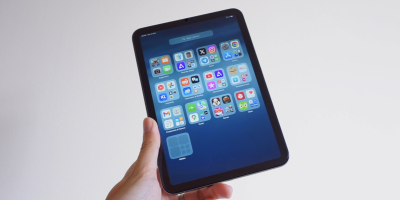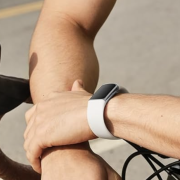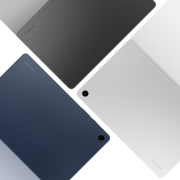A few days ago I responded to an article titled Android Is Doomed with a rather crass, unapologetic denial of the author’s sensibility. In a world where Android news swirls at cyclone speeds, I just didn’t have the patience to offer an analytical rebuttal – but I still wanted to point out how some people fail to see the success of Android above and beyond it’s relatively minor and unavoidable challenges.
But Kevin C. Tofel, blogger from jkOnTheRun, ran a similar piece yesterday. There are two differences in Kevin’s article:
- It was responding to a different article – one that criticized Android but with a more accurate and fair analysis
- Kevin demonstrates a bit more patience, offering a thorough and level-headed assessment of the situation/criticism. It’s a great read and I definitely recommend you read the article in its entirety.
I love Android – no doubt about it – but I’m not above admitting it’s challenges, shortcomings, problems and other negative factors. No mobile OS is perfect and with each decision made there will be necessary evils – it’s all about finding a formula that will work best and I think Google has cooked up a pretty darn delicious recipe.
Kevin’s article closes with a great conclusion – one that my own article would have likely reflected (though not so eloquently) had I written a complete response:
There is a fragmentation issue with Android — in that respect, I’m in total agreement with Mark. I’ve even asked your opinions on if Google should “de-frag” Android and attempt to get most, or all, phones on the same version. But ultimately, it’s not up to Google and their open-source platform. It’s up to the carriers and the handset makers unless Google draws a line in the sand and exerts near-total control. If that’s what you really want, you can already get that from a company in Cupertino.
Google clearly has some choices to make – as do the carriers and manufacturers – in which direction they want to take their Android initiatives. But the best part of Android is that its users and enablers can take it any direction they want. And even the United States Military would agree with that… how can you argue with that?








Really dont get why this fragmentation deal is so important to everyone?
The iPhone is a good device…. but thats all it is. The Fragmentation is making android a FANTASTIC platform. The ability to run on so many different devices. The fragmentation will cause the developers to write better apps that will work on these different platforms.
So what, my G1 has android 1.6 and the people with a nexus one get 2.1 Thats the way life is. Ages ago when i had a nokia 6020, my friend about 2 weeks after that had a much much better nokia. I didnt sit there waiting for an OTA or wishing i had the apps he did. It was just tough luck. When my contract is up, ill upgrade and have the ‘best’ phone for a little while.
Fragmentation exists with computers and people deal just fine. Itll take time, but it is actually a good thing as far as im concerned.
i AGREE with mike.The fragmentation is great!.
Well said, Mike.
I don’t agree. dropping a couple hundred bucks every year just to get a phone that runs the latest android OS is a bunch of bung when you have one that is perfectly capable of handling the latest OS revision, but the company has moved on and is supporting their newer phone.
If google were to lay down the law, they should just lay down a requirement to what degree a phone would have to be maintained along with minimum hardware requirements so a phone can be updated. Give it a 2yr update clause which is generally how long contracts run unless you’re on Sprint. Android is still a young OS and maturing with every update. Issues of basic functionality and stability are addressed with updates and to know people could be left out in the cold with a 1yr old phone is a joke. This isn’t Blackberry or Palm OS with an extremely matures OS. Android is young, raw and hurting in many areas, and early adopters shouldn’t be penalized and hung out to dry. Especially if an OS is supposed to become more efficient as it matures and much of the hardware, be it a year or two old, could easily handle the upgrades.
And the problem extends to the hardware mfg’s and the carriers because they are the ones fragmenting Android for whatever reason (hopefully for the better though), and you have to put faith in them on how long they choose to support OS updates.
Seriously…there are Android phones being debuted at electronic shows that are still running 1.5 and 1.6. How sad is that?
Mike, could you have made a worse analogy with computers? If I own a computer I can upgrade the cpu, gpu, ram, hard drive, monitor and so on. I can also upgrade the OS. In fact one can go from XP to win7 which is leapfrogging an entire major OS release, and automatic updates come down from MS all the time to keep you current. Heck, I can still run Office 2003 7yrs later on a win7 machine that’s 3yrs old. Care to try a different analogy?
I don’t care if someone has faster hardware, better screen res, or a thinner and lighter phone. I do care that if the hardware is still capable I should be able to run the latest version of the OS. We’re talking somewhere between a 1-3yr time frame at best, and we’re not talking about comparing a Nokia dumbphone to a better one either. That’s another poor analogy.
Going back to PalmOS, I remember the only reason devices weren’t updated were because of hardware issues. WinMob had people in an uproar when a very capable phone wasn’t getting updated, and I think on an occasion or two the voices were loud enough to get it updated. Heck you already have the big issue now with the HTC HD2 and whether or not it’s going to get the win7 series when the time comes. People are investing decent money in hardware and don’t want to see it obsolete before their contract is up or the’ve seen a decent return on their investment.
Well i dont !
Three points:
1)Fragmentation is not the same as being able to run the os on different form factor devices
2)Fragmentation does not exist with computers
3)Fragmentation does not offer a single advantage , only disadvantages
First point: Making the OS run on diffrent devices is rather trivial.Apple is doing the same thing and noone is complaining because there is nothing to complain about ! You have the ipod touch (1stgen to 3rd gen) the iphone and the ipad and the os has been adjusted to fit all of those devices.Some can do some things and not others so the os reflects that.Pretty simple.What we have here is a whole different story.We have devices that for no apparent reason run older versions of the OS that not only offers new features but also new API’s which means that some apps (read:the coolest apps) wont work with these devices.Theres also no guarantee that they will ever be upgraded.And if they do , it ll have to be pretty soon otherwise you re loosing value since phones dont live forever and some time later you ll buy another one and you ll have lost a considerable fraction of its lifetime using outdated software.
Second point:What would happen if for some reason you went out and bought say a laptop that runs XP and later you found out that you cant even install 7 or that it would take one or two years before you could (which is about 6 months in desktop os time).You d get pretty mad wouldnt you ? And what if there were some cool apps that didnt even ran on XP ? You d get even madder wouldnt you ? Would you buy this laptop if there was no guarantee that you wouldnt find your self in such a shitty situation ? You wouldnt unless there wasnt an alternative.Which in this case there is (*cough* iphone *cough*).Why would you tolerate that with your phone ? Do phones have some magical property that makes them different than computers ?(Hint:NO!)
Third point: Well i think i ve ocvered pretty much everything so let me recap.Fragmentation in this context means the freedom to choose between an old version and a new version (without getting anything extra for choosing the old version) AND also not knowing essentialy which one you ll be getting in the long run (because manufacturers dont have to say shit about their future plans because noone is pressuring them (Are you reading this Rob ?(and all the other tech journalists ))i Challenge anyone to tell me how this can be a good thing.
I think both articles are well written and make valid points. Being a Sprint Hero owner, I can’t help but associate more with Mark’s point of view. I must admit that it sucks big time to see the hype and release of new apps that completely bypass my relatively new phone. In some ways I do feel a bit “punished” in that they have my money and therefore have little incentive to update my device to the new, current offerings from Google. Yes, I got the Sense UI and yes it’s great, but now I’d rather just have the stock 2.0/2.1 OS. So with all that said, I think improvements need to be made on the manufacturer/carrier ends to speed up the release of Google’s updates for the OS. If that means Google getting involved in some way, then so be it.
Fragmentation will NOT encourage developers to write better apps; it will encourage them to write *fewer* apps.
I have a couple of concepts I’d like to bring into mobile computing, but I’m wary of Android’s multiplicity of APIs and device constraints. It seems as though anyone developing for Android now must be prepared for bitching and refunds from users who have wonky/old versions of the OS. Who do you develop for, by the way? Only one device even uses the most current API!
Google needs to license some portion of its OS in such a way that USERS are empowered to upgrade their devices from a PC, rather than waiting for hardware manufacturers and carriers to get their acts together. For most users, Android is still a closed platform; for most developers, Android is several closed platforms.
Both of those were great articles. By the time android 10.0 comes out it would put 1.5 in the dust and the G1 would be considered an antique lol.
@kostas you make a damn good point and I agree. These manufactures don’t want to update their software they want you to buy a new one. And this “open source” project isn’t as open as it would seem. New android devices are coming out with 1.6 with promises of 2.0/2.1. So what happens when Google pushes out 2.5/3.0 etc for the nexus one. Google playing its cards close to its chest is pissing me off. Not everyone wants a slate phone. If Apple can get HTC/Google to innovate by suing the pants of them, thats fine with me.
@kostas
You make a good point. There are two kinds of fragmentation.
1. (the good kind) many diverse devices, many manufacturers, many carriers, running a single OS that developers can target.
2. (the “bad” kind) different devices having different versions of the OS over time, and in some cases no option to upgrade
The 2nd kind is worse, but still not that bad.
For an end user, a device typically has a life of only 18 to 30 months.
The differing versions of Android (1.5, 1.6, 2.0, 2.1) is only a short term problem due to the rapid evolution of the OS to get to its present level of awesomeness. I expect future updates will get less frequent. Also the differences between them will become less profound. (eg, it will be easy for a developer to support 2.0, 2.1, 2.5, 2.8, etc)
In two years, that 2nd kind of fragmentation (which OS version) will have all but disappeared from the Android world. It’s a short term problem. The real question is once things settle down, how long is the period between major version numbers (eg, 3.x, 4.x, 5.x, etc)?
@kostas
Since your comparing phones OS to computer OS, here are a few things that don’t fit your arguments.. Many people did find themselves unable to upgrade their Windows PC’s from XP to Vista because of hardware requirements.. now on a PC, you can update hardware components and get there.. a phone doesn’t have that ability.. There are many instances where the PC could be upgraded from XP to Vista, but you wouldn’t want to live with it day to day.. Android is more comparable Linux.. The base core OS remains the same, but functionality is added to support newer hardware.. On a PC, the space required for your Linux OS to support some obscure piece of hardware that is not on your machine, is no big deal.. however on Phones that real estate is at a premium.. Having the complete 2.1 OS, on a phone that will not be able to use functions for hardware it doesn’t have, uses space that will decrease performance.. It’s all just numbers anyway.. For example, when the Droid came out with 2.0 and had Google Navigation, having 1.6 I wanted 2.0 for that feature.. But all that was really required was to make Navigation work with 1.6 .. because the core OS is the same, it was not a big deal.. To me it doesn’t mean squat if it says 1.6 or 2.0 as long as the applications that don’t require hardware I don’t have, work.. Applications that require hardware that I don’t have are never going to work no matter what “number” my OS says.
I completely agree with chad, cuz I jus got my hero and a week later my bro comes telling me that android 2.0 jus came out. I felt bad because now my new phone is old. I find it amazing how technology advances so fast. I can barely keep up with it. Now my phone Is outdated n I hav 2 hope they come up with an update soon. I hope not 2 many of the newer apps dnt work on my phone.
@Ryan C
My point exactly!
@thegreattaurus
I dont know whether the manufacturers are trying to get you to buy a new one or are just too lazy or something else.I am suspecting that most consumers are completely clueless so they dont know or care about OS versions compatibility etc so the manufacturers have no incentive to issue upgrades.I blame the manufacturers and not google though.I posted a comment on Kevin’s article about that , its too long to repeat.
@DannyB
I agree but for now the problem still stands.In the future it might be less severe but still if it takes 6 months to get the upgrade you ve wasted 1/3 or 1/4 of your phone’s lifespan using older software even if you ever get the upgrade (something for which theres no guarantee).I Dont like that at all
@Dennis
I think my analogy still stands.If you are referring to hardware incompatibilities then that was ms’s fault or the hardware manufacturer’s.They were supposed to make it work but they failed.Here its even worse because i am asking the company that made the damn phone to give me the upgrade.Do they need to fix a couple of drivers or port their stupid custom UI to the newest version ? Then do it and give me the freakin update! Now if the hardware cant deal with the newer version then obviously i am not asking for the impossible.But from what we ve seen so far thats not the case.The devour can handle 2.1 (since the legend can) but moto just doesnt seem to care.I should also mention that its more likely that newer versions run faster than older ones since the product hasnt even matured yet.Theres no reason to think 1.5 is lighter than 1.6 but the backflip runs 1.5! And it hasnt even come out yet ! This is just sad and it clearly isnt about the hardware !
Even with fragmentation, please consider the following:
Google has managed to make Steve Jobs/Apple sweat, and quiver all over an O/S that was cobbled together through a purchase, and then shoved out to many different phone manufacturers, serving as Google’s guinea pigs.
Did ya get that? Google took a half-baked O/S (strong roots/potential, though, mind you) and managed to pit it against the most popular current smartphone, and make said smartphone pee its pants (see: lawsuit against HTC). That’s pretty damn amazing alone.
Further, um, apple people, hear me now: Google is in the mobile O/S business as a side-venture! They do not depend on REVENUE from this O/S (as yet, yes they can through mobile advertising eventually). However, this area is Apple’s bread and butter.
I love how Google is kind of like a giant just kicking cans (or apples) around for amusement.
Google is sort of like a corporate Einstein, tinkering its lab.
Go Google.
@kostas
“.I should also mention that its more likely that newer versions run faster than older ones since the product hasnt even matured yet”..
.
.
Sometimes that is the case, sometimes not. Eye candy comes at a price.. I’ve said it before, I’ll say it again.. I would much rather have an improved 1.6 that runs everything better, than to have 2.x just for the sake of having it, if it makes my phone run like crap… As to the whole UI thing (stock, sense, blur) I made my choice when I bought the phone. They all have their appeal to different people, as well as giving the handset manufacturers their own way to stand out from the crowd. Personally I see it as a good thing as long as the applications in Market are able to run on them all.. If there is an app that requires more memory or processing speed than I have, it’s not gonna matter if I gave one or the other.
The fragmentation is a big deal!.
Let me put this simply. On mobile os future, people think of Google android as Microsoft versus Apple like PC os market. But with that fragmentation unsolved, it will end up like Google (Linux) versus Apple(Microsoft).
Its fine, i dont mind buying new phones for a new OS. I buy new phones for speed and better screens anyhoo. So why not let andriod go on and do its thing. If im cheap and want to stay with what i have, fine. My hero will still be a great phone in 2 years.
I love my Android, my Ion, Hero and Nexus One. But Rob, I think you’re becoming too much of a Fanboy.
I develop for Android, and god knows how long I spend optimizing my application for every system. If this continues, more and more developers will give up. It’s an annoying process.
i live in a no coverage area.
i have wifi and truphone.
yesterday i was clearing my emails off my phone and i got another upgrade.
another upgrade, c’mon gimme a break, my g-1 is almost a year and a half old and they’re still upgrading it.
how many other pieces of hardware have been tweaked as much as my g-1?
for free!
if anyone doesn’t like android, try something else, i did, i just returned a trial blackberry 9700.
i will keep my g-1 ’til a UMA android comes out or google integrates gizmo 5 into google voice.
i dunno how someone can get worked up about google and android, they’re the game changers against the current mobilecom dynasties.
what would happen if google whipped out their checkbook and bought sprint or t-mo usa and then they integrated hardware, software and cellco under one roof?
think it would be worse than what we got now?
I think the most important thing to remember is that the reason we have these devices is primarily because it is a phone. If we have all the latest wiz bangs along with the latest and greatest operating system but the phone itself is crap then all the other stuff doesn’t matter. 99% of what I use mine is for email and the phone. All the other stuff on it is fun but it’s primarily fluff.
android 2.1 will be avaialable for moment and hero qtr2, so stop being tech geeks’s and find something usefull to worry about. The new flash upgrade for the samsung moment is awesome, all battery issues solved, plus it’s faster, and touch screen works super smooth like i-phone
Here’s a simple solution for those concerned with fragmentation. Using the words of Steve Jobs:
Purchase a stock 2.0 (Google certified) Android smartphone. Not that big of a deal.
Steve
Sent from my iPhone
What I find some people lack in these assessments is the other perspective.
The average consumer thinks Cupcake, Donut, and Eclair are all junk foods and have no idea that Android comes in so many versions. They are well aware of Windows XP, Vista, and 7 but when it comes to cell phones the broader features and carrier support is what sells phones in the US of A (brand, form factor, hardware, carrier, price, and nowadays app support). And that is usually how phones are presented to them in the store. Only the technically inclined or educated even bother with things like OS versions.
The only issue that I forsee in the Android world is the “overlays” that manufacturers do to personalize the handsets. That can change the feel for the OS dramatically and with it the user’s experience. It is like using the SE X1 (X Panels) vs Samsung Omnia (TouchWiz) vs HTC Touch Diamond (TouchFlo 3D) which all used WinMo 6.1 but had a different feel to each one.
@raven369 – good idea, except 2.1 is already out, so you’d be missing out on apps developed for 2.1.
Fragmentation is terrible for app development. Devs need to either develop for several different platforms, develop for the lowest common denominator and not take advantage of new features, or develop for the highest version to take full advantage and leave out a good chunk of users.
And it’s also bad from a PR standpoint. Most people don’t spend a lot of time of sites like this and they have no idea that there are different versions of Android. They buy a phone and then try to install some apps and find they don’t work on their phone. So they bitch to all their friends about how crappy this Android thing is.
Obviously when you have a bunch of different manufacturers making different phones, it’s much harder to manage than having one phone. I don’t know what a good solution is, though.
And the comparisons to different versions of Windows aren’t valid because you have a lot more control over your PC than you do your phone. You can upgrade your OS on your PC whenever you want, even if you don’t have enough power to run the newest version. You can also upgrade the memory or processor. You can’t do that on a phone. And you can get a new PC whenever you want, you’re not locked into a two-year contract with an ETF.
Forgive my naiveté, but I still fail to see why I can’t just upgrade my phone myself? I have the droid, and I was really hoping for the ability to just install 2.1. Now of course I find out that I somehow have to wait for motorola and verizon to install it for me?? How come I can install windows 7 on any PC I want (even if it runs slow) and it just works with whatever hardware you have?
I understand the need for Motorola to make new drivers. But that should be it, and it shouldn’t take long. PC hardware makers do it all the time. As far as I’m concerned Moto should only worry about its hardware and the drivers that make it work. Leave the OS to me and Google.
I have this dream that one day I’ll be able to go to Google and just download the new OS anytime I need to. Much like application updates happen today in the market. Verizon shouldn’t ever need to interfere, and Moto only needs to write the drivers.
It will be improved.
There are so many people that are and will be using it and Google will protect their OS and make it better and beat the competition.
I think that the fragmentation issue is a combination of two major issues. 1.)The Android OS is still very much in an infantile stage, and releases are coming out very quickly in order to bring it up to speed with the competition (Apple OS). 2.) The first round of Android devices (and some subsequent devices perhaps) are well underpowered. Take the G1 and My Touch 3G for instance, these devices weren’t even able to run Android 1.5 smoothly. A smartphone is supposed to be a business device, and it should have the hardware to perform those functions seamlessly, the OS shouldn’t be sold on inferior devices.
Although easier said than done, a possible solution would be for Google to slow the releases of Android OS to once yearly (2 updates per device lifespan), and for the Handset alliance to formally come together and create a charter that outlines minimum hardware requirements/specifications (regardless of vendor) that should be used in future devices based on OS version from Google.
There will always be fragmentation with this OS framework, but the fragmentation can be minimized dramatically if planned correctly.
Heya everyone,
I just wanted to throw my 2 cents worth into the ring about the “fragmentation is great” ring.
I’m a developer – a hobby developer – while yes every handset should have the highest android it is capable of running well, my believe, the problem is, if companies don’t honour this, what happens is Google advances everything – suddenly a simple application has to be written a number of time just to use different versions.
That has just double my work load, fine, but then what about support? Ok so I double my work load for support, two different sets of unique bugs.
Now at the rate Google is updating Android *Which is great, dont get me wrong* means this “double of work” quickly ramps up.
Developers will come to a cross roads, do I drop the app for the lowest android version or spend lots of time supporting it still?
I personally want to try and give every user the same experience across as many phones and versions as possible, but if companies had a better method of keeping handsets up-to-date, then developers would have their work reduced by a great deal, all of this is hidden from the user.
I’ve been experiencing this over the past week with one of my own applications.
If developers don’t support all of these devices, only the latest, then G1 – Motorola Milestone / Droid would be mighty lonely on the market – so fragmentation needs to be limited as much as possible. We don’t mean old devices should be removed off the face of the earth, but simply updated where updates are possible, reducing the amount of work, increasing the amount of users we can target and *hopefully* increasing the amount of happy users :-)
Cheers,
Matt
For all you that want to update your phone yourselves, root the damn thing n stop crying.. the manufacturers choose which version of the os they want to use, not google..and for you late hero buyers, read up on stuff before you spend your money, because the hero was no where near a new device when the droid was released..thats just bs talk.. i blame you guys for buying sense n blur phones and not being knowledgable about what you were buying before you bought it
Gauntface, you can be my new friend. Hello friend!
@g1 bodie – Umm… some people can’t root their phones because it’s not possible at the moment. And even the non-sense/blur phones still end up taking forever to update. My milestone says “with google” on the back, I believe the droid also says this, and guess what, still no 2.1.
One piece that has been left out of the Windows/OSX comparison is price. When you get the new Windows 7 for example, you are not getting it for free. You are buying it for hundreds of dollars. You are also not OTA’ing it. You are waiting 2-3 years and going to the store and painstakingly installing it on your computer. TIME and MONEY. Those are significant differences. With my G1, I’ve gone from 1.0 to 1.1 to 1.5 to 1.6 – all without shedding a dime and all within less then one year’s time. No, I don’t have 2.1, but I do have Google Maps (which saved me hundreds from buying a GPS system) for FREE.
I’m sorry guys, but I can’t complain. My G1 is superior to the iPhone 3G, the Blackberry Storm 2, and the Palm Pre Plus. Not the iPhone 3GS, mind you, but my CONTRACT is not ending until December. That’s the last piece. For most consumers, they buy a new phone every 2 years due to contracts and wear and tear on their phones. 2 years out, your PC or Mac doesn’t look like crap. Your phone does. So people upgrade to a new phone regardless of the OS. I guarantee that any of you who has a Nexus One with 2.1 and it’s inevitable future OS upgrades will buy a new phone 2 years from now.
Lastly, if you don’t want to deal with OS fragmentation, send the carriers a message and buy a Nexus One. It’s on T-Mobile and will be coming to Verizon by the end of the Spring.
“2)Fragmentation does not exist with computers”
You’re kidding me right? Just because most people may still be using XP and switching over to 7 in the next year or so… doesn’t mean it isn’t fragmented. How many different configurations can you have from the hardware level that will make software incompatible? What about Mac’s growing market share? What about the 400 different versions of Linux for home use?
@Dennis –
No, you won’t miss out on updates if you purchase a Google certified smartphone (the ones that have “with Google” on the back). The Motorola Droid/Milestone, HTC Nexus One, and HTC G1/Dream are essentially Google’s flagship Android phones. Google has worked closely on these 3 smartphones to give users the full Android OS experience. Disregarding HTC G1 since they have outdated hardware that is unable to handle Android 2.0 and over, why would they not want to update these smartphones that have made their platform popular?
I forgot to mention about the HTC Magic. It has outdated hardware as well so it won’t be able to handle the newer functionalities of Android 2.0 and above. But you can’t really blame Google for the G1 and Magic because let’s face it they were just starting out and they didn’t really know what they were doing or it’s just that the technology wasn’t there at the time. With the current 1GHz processors that are available to smartphones today, it should be more than enough to handle future Android updates until 1.5/2.0 GHz processors become common.
“Lastly, if you don’t want to deal with OS fragmentation, send the carriers a message and buy a Nexus One. It’s on T-Mobile and will be coming to Verizon by the end of the Spring.”
Send them a message by doing what we’re saying we don’t want to do, which is having to buy new hardware to get a new version of the OS?
@ TF
I kid you not
“How many different configurations can you have from the hardware level that will make software incompatible?”
Very few to none.Are you implying that some hardware configurations might cause some piece of software not to run properly ? Because that might have been true in the 90’s but theres no 3dfx glide and stuff like that anymore.Everything runs on everything.The same installer for xp vista and 7.It always works flawlessly.And please dont tell me about 32/64 bit versions.
“What about Mac’s growing market share? What about the 400 different versions of Linux for home use?”
We are talking about android , a single platform.Android is becoming fragmented , not the cell phone market.The market as a whole has been “fragmented” since the beginning.If i was using your definition i d be whining because my iphone doesnt run android or because my droid doesnt run the iphone os.
ps
Linux is totally fragmented!One of the reasons why it isnt doing as well as it could.((i ve been using linux exclusively for a year now , windows free since 2009!)
Kostas, you may be tech saavy enuff to get a computer or laptop with an actual graphics card, and enough RAM and memory to future proof it for several years for whatever your purposes may be: games, photo/video editing, HTPC fun, DBA boringness, etc etc etc… but for the average consumer, the cheap 300-400 dollar readily available units at Best Buy, Wal Mart, Target, etc that have Intel onboard graphics, the lowest amount of RAM needed to run Windows 7, and a 100 gig hard drive may soon find themselves in a totally different situation. Additionally, the business world is turning to even cheaper e-Machines and roughly the same price point Lenovo’s… which is great for the bottom line of those companies, but quickly require replacement.
Android isn’t doomed, it’s free.. And so.. It will live forever.. But, on every crap gadget that can barely support it… Wait until the flood of retooled iPhone knockoffs running poorly implemented android come out of china. But sht, I’d buy a $100 touchscreen for the kids… Nah.. Nevermind I’d spend the extra $50 and get them an ipod.. That’s where we’re at right now.. Buy a leappad plus a few carts for $150? Or an iPod with unlimited free games..
We need to see a tiny, sub $100 android media device.. iPod killer (lol, not, but hey)